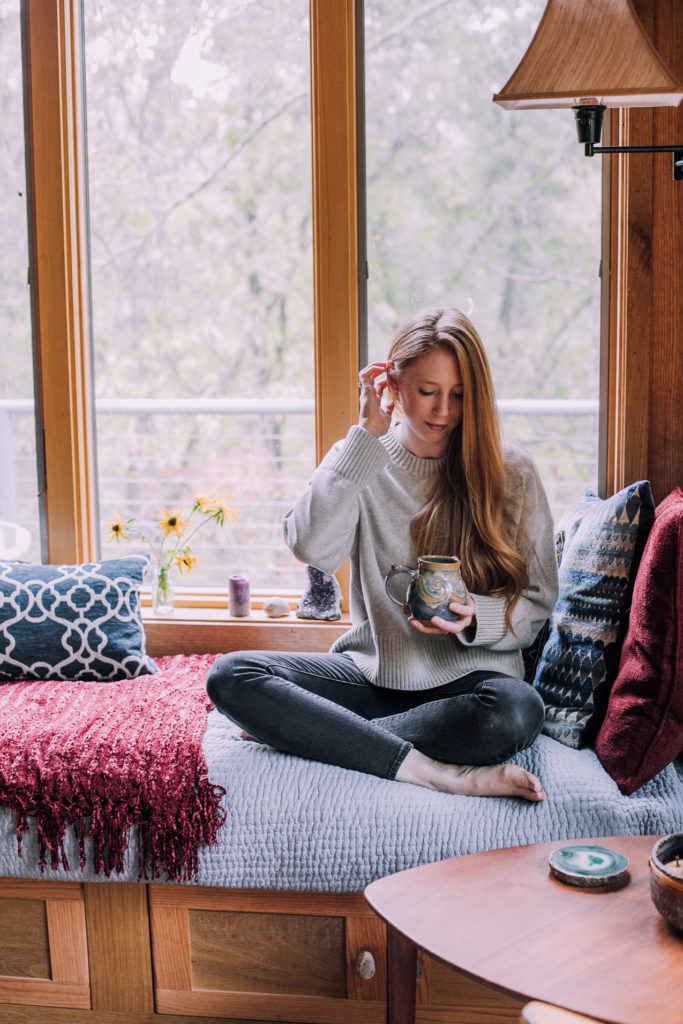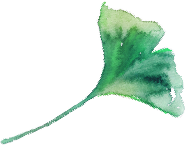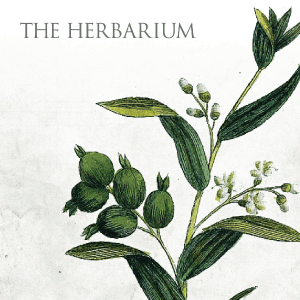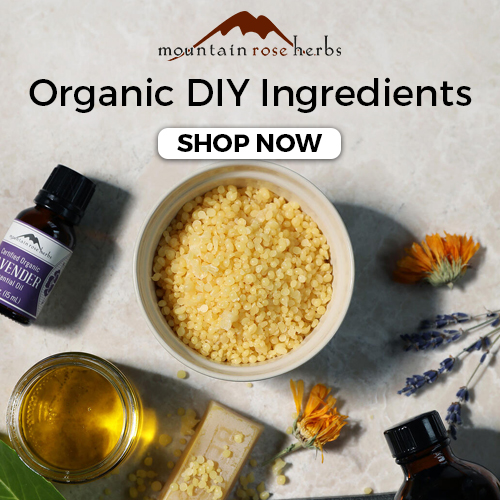
Over the years, I’ve had lots of questions about why I chose the herbal and nutrition education path that I did, or why I got into clinical practice instead of another route. When folks are just starting out in herbal medicine or even nutrition / dietetics, there are SO many questions about what the right program may be for them, or where they want to be professionally and if certain programs will get them that end goal. It’s a huge amount of time (and money!) that you’re investing, and the variety of programs available is enormous. I know. It can feel totally overwhelming. Everyone needs to follow their own education path which may be completely different for even two similar people. This is my story, for what it’s worth…a journey that worked out beautifully for my botanical dreams and feeds my soul every day.
When I graduated with an undergrad BSc degree in Horticulture and Landscape Architecture, the economy totally bottomed out – it was 2008/2009. So, no jobs. About 8 months before I graduated, a friend of mine had told me about The Maryland University of Integrative Health (at the time known as The Tai Sophia Institute) which had an accredited graduate program in herbal medicine, and honestly this just totally blew my mind. As a botany obsessed kid who spent every moment of my time away from school in the woods, making berry potions and climbing trees, plants were my love language (hence the horticulture degree), but NO ONE ever told me I could be an herbalist for a real life job so I never thought that was an option. This ignited a long suppressed desire to live in the magical world of plants and got my wheels turning…hard. I started researching every single school on the east coast that had an herbal program. Each one seemed to have their appeal – some were 6 month programs, some a bit longer, some more plant/spirit medicine, some more herbal first aid, some were seasonal apprenticeships and some were correspondence courses. Personally, I gravitated towards the programs that were more science based, and no other school seemed to come close to the hardcore science curriculum (and medical curriculum) that MUIH offered. So, that’s what I chose. Also, accreditation had it’s appeal at the time. It seemed like a safer option to get a Masters Degree than a “certificate of completion“… especially with joblessness immediately looming over my millennial head. More on this later….
I also had a deep desire to learn nutrition and was researching schools to do this as well. I spoke with several dietitians over the course of my last year in college and, although I only interviewed about a dozen of them, I knew I didn’t want to work in a hospital setting, I was more drawn to holistic routes of nutrition, and I definitely didn’t want to get another bachelor degree in dietetics to be an RD. If I was going back to school, I wanted a higher degree. So, MUIH was looking better and better because their nutrition curriculum was not only integrative and Ayuryvedicaly focused (which really resonated with me, personally), it also prepared me to be a licensed nutritionist if I chose to take that route.
So, long story short – choice made. I wanted a masters degree in herbal medicine & nutrition, so I moved to DC/Baltimore and enrolled in MUIH.
MUIH was basically medical school for herbs and nutrition. Granted, the program has completely changed since I was a student there. I matriculated from the Herbal Medicine program in 2009. At that time, it was a 3.5 year, in person/on campus program that also included a full masters degree worth of a Nutrition curriculum and a 1 year clinical rotation requirement. It covered anatomy, physiology, pathophysiology, phytochemistry, material medical, research methods, clinical skills, pharmacology, and of course intense nutrition courses. Currently, MUIH has split these two programs and you now have to choose either the masters degree in Herbal Medicine OR the masters degree in Nutrition, each only 2 years which can be done entirely online. Essentially I just lucked out on my timing and got both programs in person for a longer time frame.
When people ask me now which one they should choose, I honestly can not even say. I’m completely bummed that they split the programs in half because both of these fields of knowledge – herbal medicine AND holistic nutrition – are integral parts of my clinical practice and indispensable. It’s a really tough choice. And, I can say with confidence that both programs are still incredible.
I was in the Herbal Medicine/Nutrition program at MUIH from 2009-2012 and I absolutely loved it. It was grounded in science but nurturing in spirit. It taught me how to compound herbs and create targeted formulas, run a dispensary, be familiar with herb/drug interactions, become a skilled clinician, conduct a thorough nutrition assessment and create appropriate recommendations, make medicines from the woods, conduct clinical trials and do real research (we even presented our clinical trial at Johns Hopkins!) And most importantly – it taught me how to speak fluently in the language of western medicine. MUIH wanted to create clinicians – herbalists and nutritionist that can talk with (and educate) your doctors so herbal medicine and holistic nutrition can become seamless parts of people’s health plans that doctors can actually feel confident about. We’re not talking about chakras and energy medicine and plant spirits (I mean….in our own time, yes), but our goal was to bridge the gap, so to speak, and this is why the program was so science based.
Also, during full time grad school I worked 3 days a week at a local health food store in their supplement department. I loved this job. For so many reasons, working at that job for 3 years seemed just as important to me as earning a masters degree. I seriously loved that job…and it helped me pay my rent and feed me really well. Essentially though, these three years were intensely busy. Between work and school, I had zero free time.
After I graduated, I was eligible to sit for the CNS exam (which I took after 6 additional months of serious studying), passed, and continued to earn my 1,000 hours of supervised nutrition hours to get my CNS credential. I’d HIGHLY recommend anyone interested in practicing nutrition to earn their CNS, by the way. It’s incredibly helpful to get licensed in any state that licenses nutritionist, and subsequently allowed me to get my License as a Dietitian/Nutritionist (LDN) in the state of Maryland (which allows me to practice currently in Virginia).
So, after graduating, I decided to move to Charlottesville, VA and start my own clinical practice. This wasn’t necessarily because I’m entrepreneurial minded, but more so because I couldn’t find a job that didn’t feel like it was going to crush my soul or use my niche degree to it’s fullest potential (yeah, I know…the plight of literally every millennial who started their own business in the last 10 years – and good for them, btw). And, full disclosure, I had extremely generous and supportive grandparents who put me through undergrad and grad school so I graduated without debt. This was HUGE. Huge. I can’t even tell you (but if you’re in your twenties/thirties right now- you know). Not having debt allowed me to start a business. I honestly know it wouldn’t have been possible otherwise. I’m forever grateful to them for letting me start my life right out of the gate. I’ve always said since that if I ever won the lottery, I would pay off the student loans of every single person I went to herbal med school with so that they can start their lives, too. And I still hold to that.
I practiced for a year in Charlottesville, VA. I rented an small office space in a chiropractic clinic and I created my own herbal dispensary to service my small clientele and partnered up with a small integrative MD practice there and did a lot of compounding for them too. I also worked part time in a local health food store – again, in the supplement department, to pay the rent for both an office and an apartment now as I slowly built up a client base. It was hard work but sustainable, and not bad for a first year in business. Eventually though, I decided to move to Richmond to work with a brand new naturopathic clinic that was just opening up, and I also integrated into the supplement department at Ellwood Thompsons and worked as their in-store health coach. Both of these jobs I loved so much, and was so grateful to have opportunities to serve the RVA community in both capacities.

6 Years Later
I work as a clinical herbalist & nutritionist in my own business (consultations offered right here!). I serve as adjunct faculty at MUIH as a clinical supervisor in their nutrition program for the students seeing clients in their final semesters. I teach occasionally at Sacred Plant Traditions (and oh my gosh I love it so much). I supervise CNS candidates in need of their 1,000 supervised hours, remotely. I contribute written articles and research to The Herbarium from the Herbal Academy. And I write this humble little blog. Here and there I teach classes and workshops and retreats as time allows. But all that keeps me plenty busy, and I’m selective now about what else I put on my plate.
What I’ve Learned
Since starting herbal medicine / nutrition school in 2009, I’ve met hundreds of herbalists and been completely in awe of dozens of them. I’ve learned that you can choose literally any path – any school with so many gifted instructors – and still be an incredibly good and powerful herbalist. You don’t need a full blown masters degree saturated in physiology and phytochemistry to be a good herbalist. The beauty of herbal medicine is that there’s no one right way to practice. I’m still learning so much every year. Even though I was drawn to all the science and research and medical applications of botanical medicine….right now I’m absolutely fascinated and going way down the rabbit hole of woo-woo plant spirit medicine. I don’t at all regret choosing to go to MUIH – I don’t think I could be doing what I’m doing without that foundational education. I also think that getting my license in nutrition was essential for me being able to practice clinically (although this isn’t the case for everyone).
I’ve learned the value in asking to be fairly compensated for my services (and therefore maintain the business I started 6 years ago), and I know this is a major area that most herbalists struggle to maintain. I could write a whole blog post about money and the practicing herbalist.
I’ve learned that I actually don’t much care for herbalists to be licensed (and they probably won’t be, in my lifetime at least). This was a hot topic while I was in school, as many of my classmates and a handful of instructors felt strongly that they should. At first, I did too, just for the sake of being easier to get a legit job and be taken seriously and put more of a value on the intense learning we all had to go through. But I changed my mind after I graduated and became more integrated within the herbal community. For any field to be licensed, there needs to be some governing body deciding what is most important to learn, how it should be done most correctly, put a curriculum together + licensure guidelines and find some insane way to make it fit into the broken health care structure we have in the US today. If you’re studying herbalism now, you’ll know that one of the awesome things about herbal medicine is the tremendous amount of cultural variation there is about herbal practice. Like I said – there’s no one right way to practice, and once we start licensing herbalists, that excludes a huge humber of talented and knowledgeable herbalists who may choose to follow a different path. Doesn’t make them any less of a good herbalist – but it sure does put restrictions on what they can do with their unique gifts of knowledge. I know there’s pro’s and con’s to this argument, but that’s all I’ll get into right now.
I’ve learned I can be selective about my clientele and I don’t have to say yes to working with every single person (although I sure didn’t feel this way my first year in business). The more I truly put effort into visualizing and “asking the universe” (so to speak) to send me the people I really want to work with – the more abundant and fulfilling my clinical work has become.
I’ve learned it’s worth asking for help and investing in things I’m not good at for my business to grow. Things like website design, branding, photography and marketing were all things I seriously struggled with my first year in business and I eventually outsourced and hired experts to do this for me and it payed off – big time. Even though my photography skills have come a long way, I still use a professional photographer when I need help with shoots that I can’t do on my own (and PSA – if you need a photographer for literally anything – work with Renee – she’s pure magic and has taught me so much!).
I’ve learned my business needs to be fluid and change as I change. Being flexible with how life shows up allows for my business to bend and flow as it needs, and continually evolve.
Now You
So where are you in your herb / nutrition journey? Are you feeling stuck or overwhelmed or not sure where to start or continue after school? Leave a comment below and let’s get that conversation started because – hive mind – and someone’s probably been there too and can help. I’d also love to hear about your experiences in various schools (as I’ll be writing a follow-up interview series on herb and nutrition schools this year) – shoot me an email! I’d love to hear from you!
Additional Resources
Read more Herbal & Nutrition School Reviews from Students, Teachers and Founders








